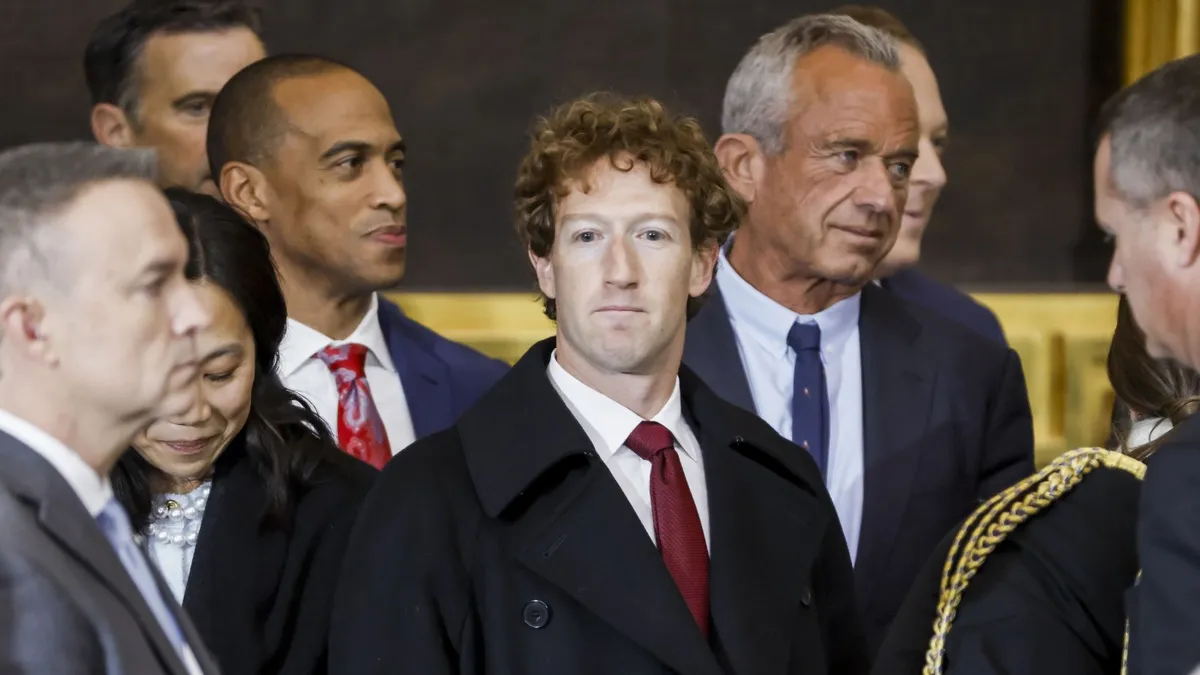
The Federal Trade Commission's (FTC) significant antitrust case against Meta is set to commence on Monday in a courtroom located in Washington, DC. This pivotal trial marks the conclusion of a nearly six-year investigation exploring whether the social media giant violated competition laws by acquiring Instagram and WhatsApp. The outcome of this case could profoundly impact Meta's substantial advertising business and determine whether the company will be compelled to separate its widely-used services into individual entities.
Lawyers representing both the FTC and Meta will deliver their opening statements before U.S. District Judge James Boasberg. The trial is anticipated to last between seven to eight weeks, during which a vast array of evidence will be examined and numerous witnesses called to testify. Notably, the government plans to summon high-profile individuals, including CEO Mark Zuckerberg, former Chief Operating Officer Sheryl Sandberg, and the head of Instagram, Adam Mosseri, to the witness stand.
The FTC argues that Meta's acquisitions of Instagram in 2012 and WhatsApp in 2014 were strategically planned moves to eliminate competition and maintain monopoly power within the social media landscape. The government claims that Meta employed a "buy or bury" strategy, acquiring competitors it perceived as threats or driving them out of business entirely. The FTC asserts that such actions are illegal under federal antitrust laws, which aim to promote fair competition in the marketplace.
To restore competition in the social media sector, the FTC is advocating for Meta to be required to divest its ownership of both Instagram and WhatsApp. Government officials argue that separating these applications would empower smaller social media companies to compete for users and advertising revenue, ultimately weakening Meta's dominance in the industry.
In response, Meta insists that it is facing repercussions for being an innovative and competitive technology company. Meta's legal team argues that the company has always engaged in fair competition and contends that regulators are unfairly targeting its success. Furthermore, Meta points out that the acquisitions of Instagram and WhatsApp received approval from regulators over a decade ago, deeming it inappropriate to revisit these decisions.
Additionally, Meta argues that the current social media ecosystem is vastly different from what it was in 2012 and 2014. Today, Meta faces stiff competition from platforms like X (formerly Twitter), TikTok, Snapchat, and many others. Ahead of the trial, Meta stated that its evidence will demonstrate that platforms like Instagram, Facebook, and WhatsApp are in direct competition with various other social media apps.
If the FTC successfully compels Meta to break up, the agency asserts that this would lead to increased competition among social media startups, ultimately resulting in enhanced services for users. Government lawyers argue that the quality of Meta's services has decreased due to its monopolistic position in the market. The FTC believes that more competitors will improve offerings available to consumers and strengthen privacy protections—an area where Meta has faced criticism.
Conversely, Meta argues that a breakup would lead to a decline in the integration of its apps, potentially resulting in a worse experience for users. The tech giant believes that maintaining its current structure better serves its customer base.
This antitrust case began during Donald Trump's first term in December 2020, a time when tensions between Trump and Zuckerberg were high. Despite their contentious history, the two have recently adopted a less confrontational approach. Trump had previously threatened legal action against Zuckerberg, claiming that he would hold the CEO responsible if his platforms hindered his political ambitions.
In recent months, Zuckerberg has sought to improve his relationship with the Trump administration, even making significant company-wide changes that align with Trump's priorities. Despite speculation that a settlement could be reached, indications suggest that the trial will unfold over several weeks, with a resolution remaining uncertain.
As this high-stakes trial unfolds, the implications for Meta, the future of social media competition, and user experiences remain at the forefront of public interest.